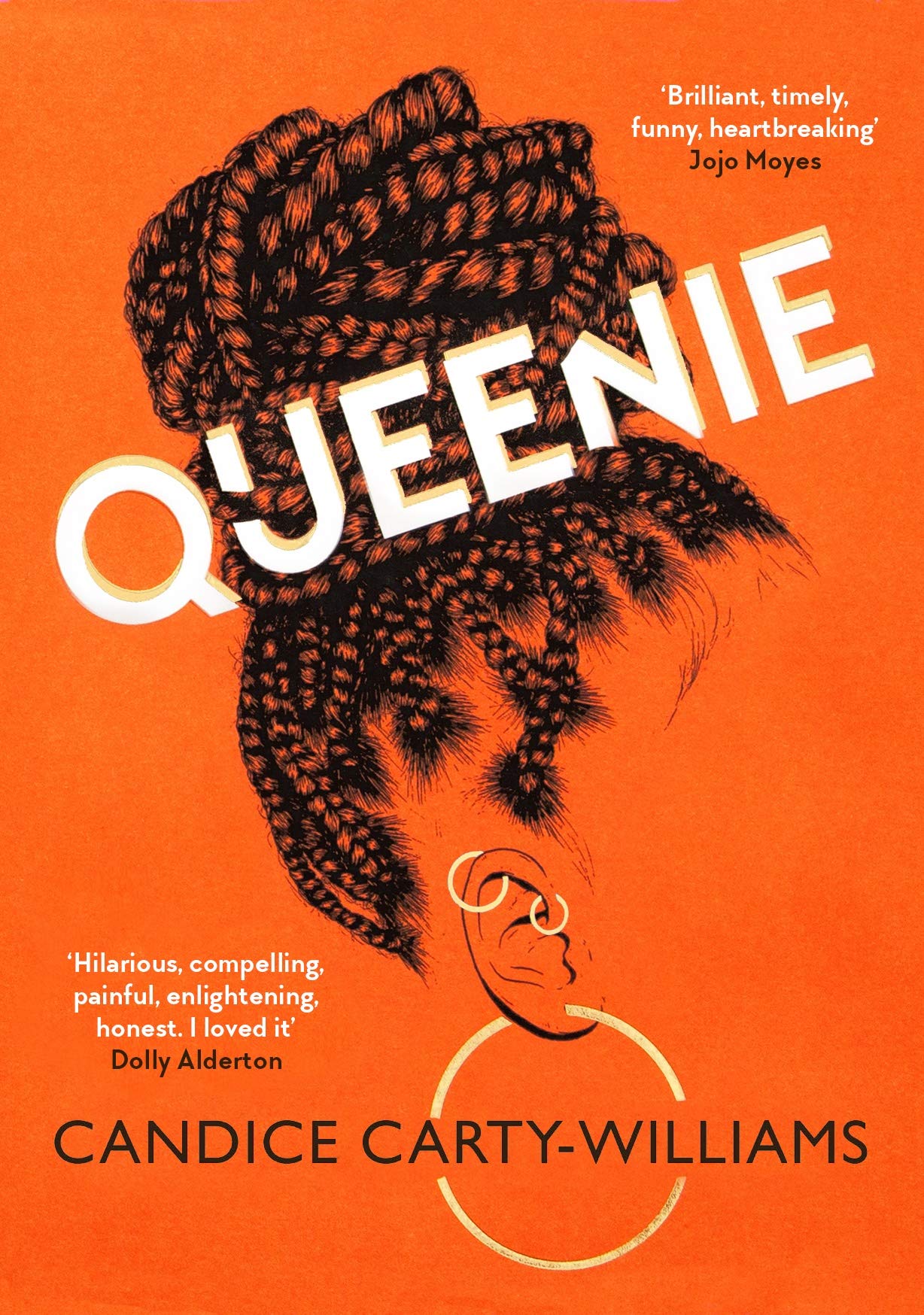Reviewing the situation
I don’t think that I had noticed this before: in the Guardian, book reviews are written by other authors. Theatre reviews are not written by other theatre makers. Why?

Last week I read Queenie by Candice Carty-Williams.
(Before going on, because I’m not really going to talk about the story or the writing, I just want to recommend you read it. It’s a brilliant, painful read with characters who feel super real. It made me think new thoughts, which I think is one of the main points of art. While Why I’m no longer talking to white people about race and Superior helped me understand structural racism in a big ‘P’ political way, reading Queenie made me think about less obvious, everyday manifestations… it’s not solely about this but yeah, read the book. Especially white people in London.)

After I finished it, I googled some reviews. I usually do this - read a book I don’t know much about and then look at the reviews after. I do it to see how my experience of reading it compared to someone else’s. Sometimes it helps me understand bits of the book I hadn’t fully understood (like recently, Theo Tate’s LRB review of Hari Kunzru’s White Tears) or fills in some context on the author, which might add a layer to my experience of the book (like Jia Tolento’s New Yorker piece about Marlon James’ Black Leopard Red Wolf, which I read at the start of lockdown).
When I was reading the review of Queenie in the Guardian (my newspaper of choice, no surprises there), I was struck by two things:
- the review was written by another author, rather than a ‘critic’ (Diana Evans, author of Ordinary People, I’m not linking it here because it has spoilers and I want you to read the book)
- the review was much longer than theatre reviews ( 773 words vs 447 words for a theatre review the following month, of Bim Adewunmi’s Hoard)
I don’t think that I had noticed this before: in the Guardian, book reviews are written by other authors. The reviewing author seems to be picked because they have an affinity with the author they’re reviewing. Maybe they write a similar kind of book, or use a similar form, or have a cultural background which allows them to understand the nuances of what they’re reviewing, rather than making ignorant or crass omissions.
Theatre reviews differ from book reviews. Theatre reviews are not written by other theatre makers. In the past, Guardian theatre reviews were written by in-house critics - Michael Billington and Lyn Gardner. (Or Alfred Spalding if the show was outside London… although good luck with getting a critic from a national paper to come to Newcastle-upon-Tyne, where we were based towards the end of our theatre days).
Now, the Guardian has one Chief Theatre Critic (Arifa Akbar) but lots of the reviews are written by other critics. (Indeed, the age of the in-house theatre critic seems to be over. After a round of sackings in 2013/4, The Evening Standard became the latest publication to get rid of theirs in June 2019). I imagine that the people reviewing theatre for the Guardian who are not Arifa Akbar are contracted review by review. These people are not theatre makers. Despite being contracted piece by piece in the way authors are contracted to review books.

I’m interested in why. Genuine question. I’m going to try to imagine some reasons why this disparity has emerged between artforms. Maybe then someone can tell me the actual answer. I'm not having a go at anyone, I'm just interested in the difference between the two art-forms' systems.
1. People who write books can write (true). They should be trusted to write other things, like reviews (true). People who make theatre can not write (um…). They would not be capable of writing critically about theatre (um…).
2. Theatre is a weird bubble where everyone knows each other and people would find it hard to be honest if they didn’t like something (maybe true, although publications like Total Theatre and Bellyflop had artists reflecting on other artists’ work… and surely the world of books must be a bit like this too…?)
3. People in theatre were offered to review theatre back in the late jurassic period, before Billington got the gig, and for some reason they said no. (Unlikely but I wasn’t there so this one has to stay on the table.)

4. You need a special qualification to write critically about theatre. Theatre makers do not have this qualification. (False, you don’t need a qualification to be a critic, in the same way as you can wake up one day and decide you’re a theatre director… oh, England.)
5. It takes longer to read a book than experience a piece of theatre so a Chief Book Critic just wouldn’t have time to read them all - having other writers do it is a pragmatic decision. But it’s still other writers, not Associate Book Critics so…
6. Novels are considered to be subjective experiences so there is no need to maintain a publication ‘standard’ by having the same person review them all. In theatre, there are objective indicators of quality like… um… at least one actor being a ‘tour de force’…? (I have no idea).
Writing this, I realised that theatre reviews have stars ratings -often added by the editor and regarded as reductive by the reviewer- and book reviews do not. And I started to wonder if, despite both things being called reviews, the purpose of the two was actually completely different.

I *think* the purpose of a theatre review is so someone can decide whether something is Good and whether they should spend their money on a ticket - it is assumed that people won’t have seen the production when they’re reading and for this reason the review avoids spoilers.
Book reviews always have loads of spoilers so perhaps the assumption is that you wouldn’t read the review before you read the book. You wouldn’t be looking at the review to decide whether to read the book, but instead to compare your experience to the personal critical reflection of someone else. (Or do people look at book reviews to decide what to read? Maybe not everyone goes on friends’/twitter recommendations and prize longlists like I do…?) Anyway, *I* feel like they have a completely different function.
So my question is:
What would be different if people writing critically about theatre in ‘big’ national platforms like the Grauniad
- had 800 words
- made performance themselves
- embraced the subjectivity of their response
- didn’t feel responsible for whether someone bought a ticket but instead fed into an audience member’s critical reflection/ onward journey with the ideas of the piece
Maybe that’s what things like Exeunt and personal blogs are for. Maybe there are some actual reasons. Or maybe it has just happened like this and no one asked the question. 'K, bye.

